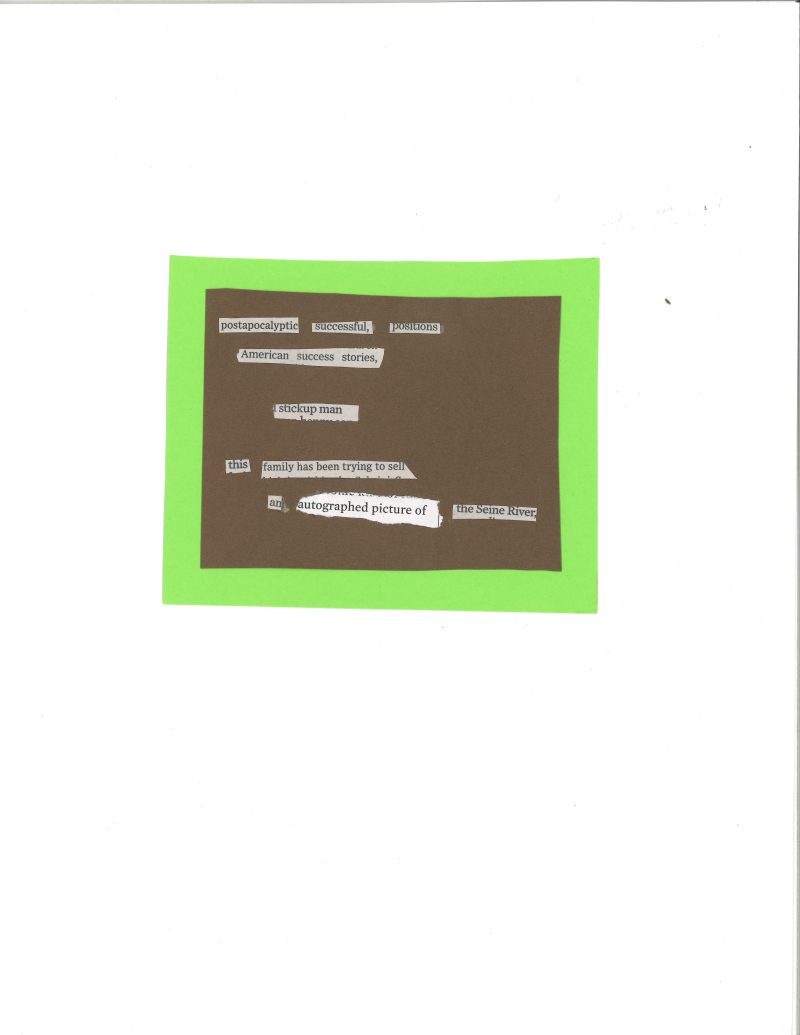This blog post is designed to help you plan for successful employment after the apocalypse*. I’ve heard it’s smart to make useful posts that will actually help people. That increases your SEO (deep web blog-ese for Search Engine Optimization). By the way, I skipped a meetup that would’ve showed me how to send 30,000 blog posts at once– how disgusting.
A dada koan is a surreal poem of random words pasted to color paper.
(The Seine River’s autograph is kinda slobbery actually.)
Here’s the above mud and latrine-green poem in B&W:
postapocalyptic successful positions
American success stories:
1) stickup man
2) this family has been trying to sell
an autographed picture of the Seine River
Well, thank you for stopping by. I stepped on my fold-up umbrella and now it doesn’t work so well.
———————-
Unrelated Addendum: Highlights of CAKE 2017 (Chicago Alternative Comics Expo) at the Center on Halsted last weekend.
- Minicomics by the students of Alex Nall (award-winning “Teaching Comics” artist). The ghost (lovely green ghost zaps everybody), “The sad little girl” (she’s on the cover– with huge crying Margaret Keane-eyes), “How MR. BORING got people to listen to him?” (he yells), and “the league of princesses– bad forever” (they chase convicts– or maybe just people in striped clothes).
2. The Shirley Jackson Project, comics inspired by her life and work, edited by Robert Kirby. Lovely assortment of Shirley pics.
3. “Toastycats, no. 1” a minicomic by Magda Boreysza– with a swellegant-elegant Laika cartoon and the popular “Meet the Vermins.” Favorite panel is a pickle, baring teeth, saying, “YOU BETTER BE PICKLES CAUSE THIS IS PICKLE LAND & WE GONNA KILL YOU.”
4. Free CAKE button.
5. “Sixth Mass Extinction” zine by Ines Estrada. Published by Perfectly Acceptable Press with its distinctive color separations.
6. My Favorite Thing is Monsters by Emil Ferris. (She wore a big black hat to CAKE.) This book is spectacular. This book is stunning. Your mouth goes agog as you turn a page. “Oh my God” pounds in your head. Astonishing, magical, HAUNTING drawings. Scott McCloud’s “Making Comics” predicted this when he wrote that graphic novels were poised to take a giant leap. And guess who’s among those thanked in the acknowledgements?– Beau O’Reilly.
*Keep wanting to add extra “p” to apocalypse. Confusing it with Grant and Lee at Appomattox, I think.

